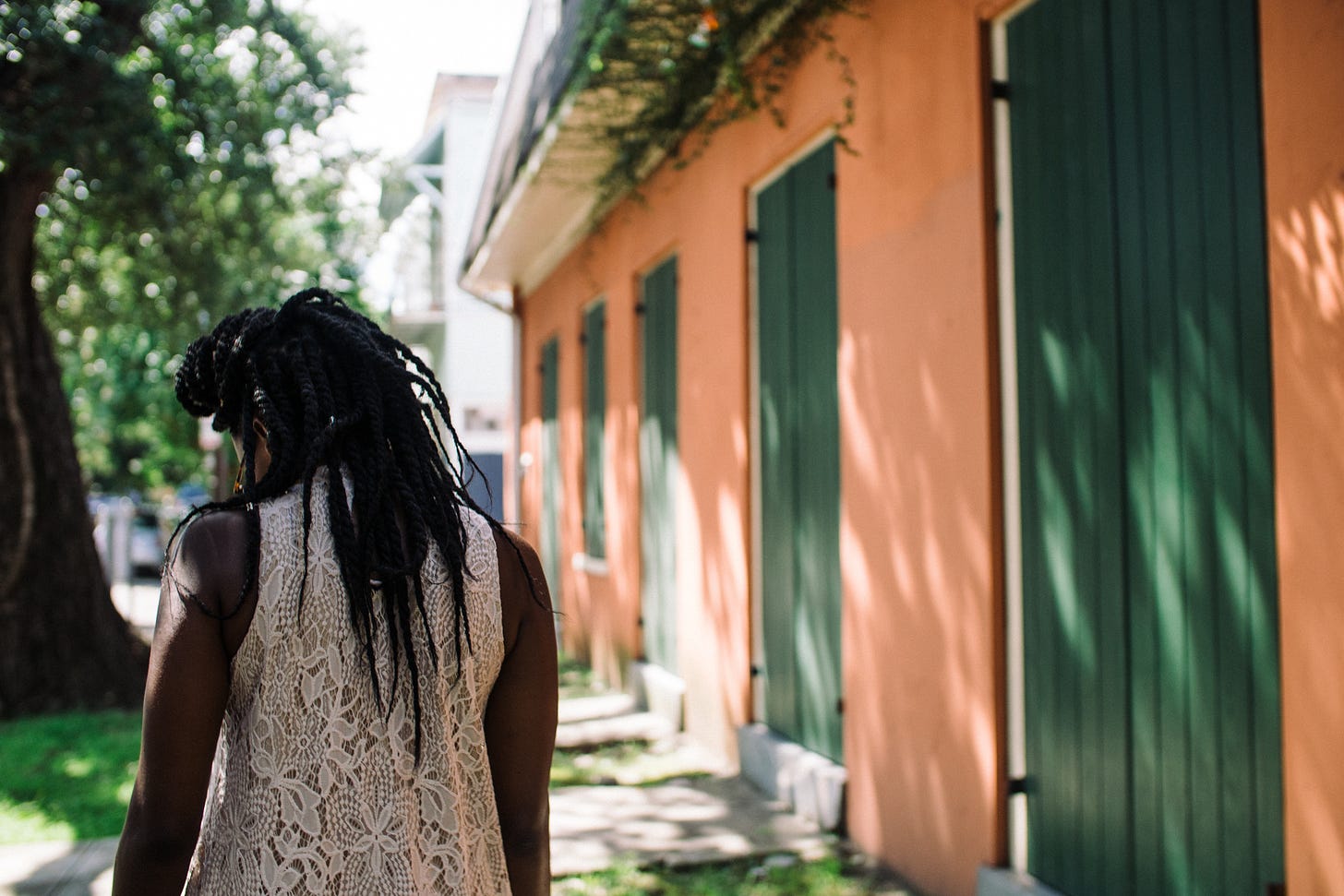It was one of those quirks you never stop to consider; an entire lifetime spent licking spoons before setting them in bowls without knowing why or even how.
I'm not a spoon licker (of course), but I like to bathe my fruit. A thing I hadn’t thought much of until she’d caught that orange swimming in a bowl on her kitchen counter. She, being the woman I had returned to New Orleans for, although I had excuses dangling like tea lights for all the reasons to return to that city that soothed me like few things ever had.
In Nawlins, I spent yawning weeks marvelling at the bayou’s purple sunsets. By day, perched in the second floor window of her Garden District apartment, I listened to the streets off St. Charles Avenue and watched the tourists and locals go by, inventing a self that was writing. That could write.
In the evenings, she and I dipped into the Marigny to watch grown men pour their hearts into instruments too small to hold all they had to say. All the while she held my hand and smiled at me in that way that told me I had said too much. Too much of the right things and maybe a few of the wrong ones.
But, the orange.
I found it sitting in her refrigerator that morning, carefully teasing it out of its bag before digging through the cupboards in search of the right bowl. The goldilocks of bowls—not too large, not too small, but just big enough. Then came the warm water, not too hot because fruits are sensitive. Too much heat and they are bound to become bruised, to lose their goodness. Just like women. Rubbing the sleep from her eyes, she had found us in her kitchen like that; the orange learning to swim and I, leaning against the counter, face awash in the blue light of the screen in my hand.
Perplexed, she pointed at me, “What are you doing?”
“I’m trying to look up…” I answered.
“No.” She broke in, pointing at the kitchen counter, “What are you doing?”
I glanced over to find the answer to her question. The now warm fruit sitting in a bowl too large for it. I hadn’t stopped to consider that oranges weren’t meant to swim, nor the absurdity of bathing cold apples, kiwis, and pears in baths of warm water before you ate them. But much like I had never acclimated to the cold winters of Minnesota, I never acclimated to the cold fruit pouring out of America's kitchens. I longed for plump mangoes snatched off low branches, passion fruits broken in half with bare teeth, custard apples bruising black as they taunted me from a tree above. I still missed the afternoon fruits that found time to bask in the sun by the roadside.
“Warming my fruit,” I said shyly.
My father, he with the gold watch and the clever smile, had left me with this one trick on our first and only mutual jaunt into America. I had caught him on another morning, ten years removed from this one, bathing an apple in a bowl in my sister's kitchen. That first Minnesota winter when there never seemed to be enough warmth to carry around, he taught me how to tease it out of cold refrigerators.
By every measure, I am the American child my mother fears will never be able to re-acclimate to the Nairobi she left behind, but there are the quirks that keep me a Kenyan daughter. Reminders of the places I have been and those other things I have seen. An inheritance that is all mine. Because you can take the Kenyan girl off her farm, out of her village, even into the city and across giant ponds of water—but you cannot take away her hunger for sun kissed fruit eagerly consuming her mouth.
My name is Karĩ (kah-ray) and I am the warm fruit. Sun kissed, slightly out of place, and swimming in a world too large for me.






Have reread this story many times over the years, each time it’s a delectable read.